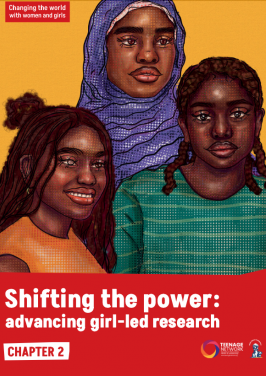Shifting the Power: Advancing Girl-Led Research
Shifting the Power: Advancing Girl-Led Research is a collaborative feminist, participatory action research project, conducted in Nigeria and Sierra Leone.
Executive summary
Adolescent girls worldwide face unique and significant power imbalances that profoundly impact their daily lives, distinct from the challenges faced by girls (young children) or adult women. Structural inequalities, rooted in colonial legacies and multiple other intersecting systems of oppression, hinder their access to education, support services, and basic rights during this critical transitional period between childhood and adulthood.
Adolescent girls in Jigawa and Abuja, in Nigeria, as well as in Freetown, Sierra Leone, took a unique approach to amplify their own experiences: Shifting the Power: Advancing Girl-Led Research is a collaborative feminist, participatory action research project, conducted in Nigeria and Sierra Leone. The research employed an intersectional feminist and decolonial approach, recognising adolescent girls as powerful agents of change. It addresses a gap in research, as studies tend to focus either on children or adult women, often overlooking the specific needs, experiences, and perspectives of adolescent girls.
The methodology used for this piece of research prioritises adolescent girls' knowledge, strategies and solutions in programmes and policies affecting their lives. The research builds on a previous report, examining the COVID-19 pandemic's impact on adolescent girls in Indonesia, Bangladesh, and Ethiopia. As in the previous phase, adolescent girls conducted the research on issues affecting them most, from identifying relevant questions to collecting and analysing data and developing recommendations for different stakeholders.
This approach not only shifted the power to adolescent girls as researchers, and not research subjects, challenging colonial notions of who has the right to create knowledge and develop strategies and solutions.
Girl-led research seeks to address the root causes of issues identified by girls and ensures that policies and programmes are informed by and better tailored to their specific needs. Girls in Nigeria and Sierra Leone are using the research as evidence to support their advocacy plans developed as part of the project.
This report presents key findings from the three contexts, and concludes with recommendations for various stakeholders, including governments, donors, organisations, and community members.
